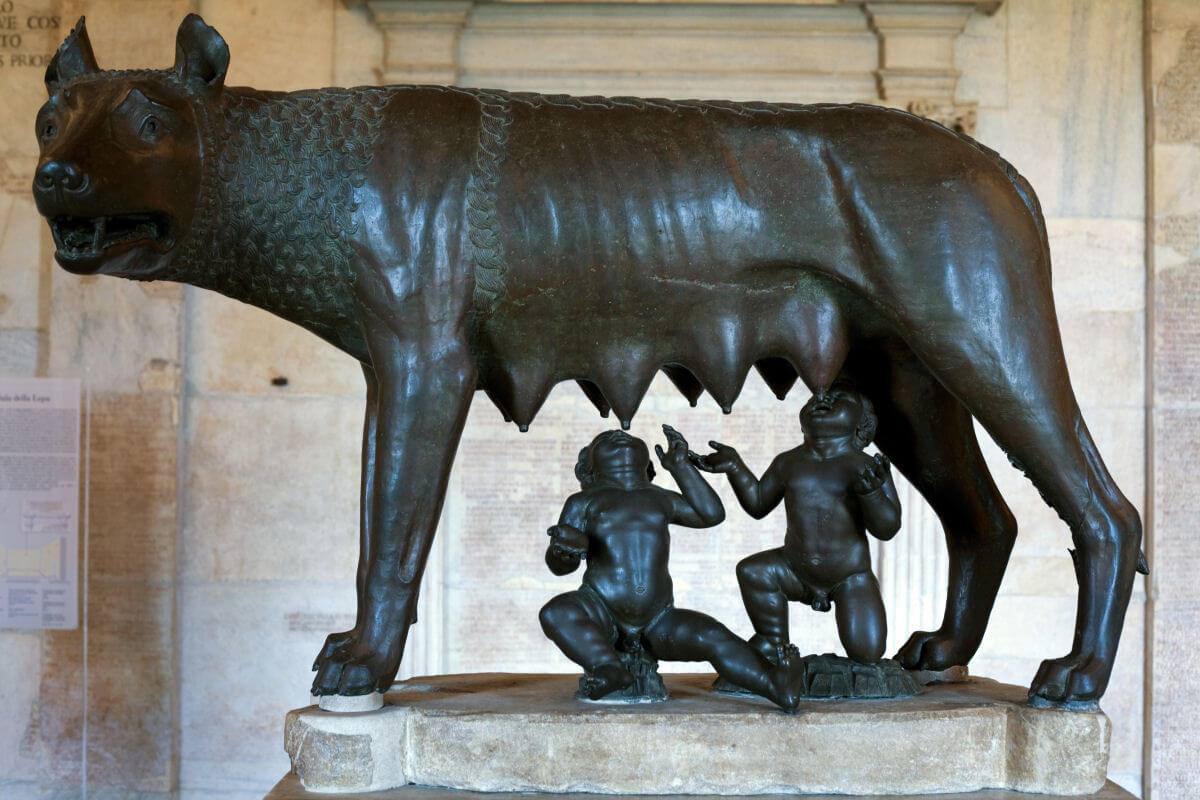"There can be nobody so petty or so apathetic in his outlook that he has no desire to discover by what means and under what system of government the Romans succeeded in... bringing under their rule almost the whole of the inhabited world."
_ Polybius (Histories 1.1.5)
Much of what we know today about the historical foundations of Rome comes to us from ancient writers such as Livy and Herodotus, along with the findings of archeology. The early history of Rome, so deeply rooted in legend and mythology, is a mix of fact, fiction, educated guesses and established notions on the conditions of the ancient Mediterranean world.

The earliest evidence of human habitation in the Latium region which included the city of Rome, dates from the Bronze Age (c.1500 BC), but the earliest established, and permanent, settlements began to form in the 8th century BC.
At that time, archeology indicates two closely related peoples in the area, the Latins and Sabines. These agrarian Italic peoples were tribal in origin, with a social hierarchy that dominated Rome's early form of government and throughout its claim to power in the region.
The date of the founding as a village or series of tribal territories is uncertain, but the traditional and legendary founding of the city dates to 753 BC. Although this date is heavily laden in myth, it is at least roughly supported through archeological evidence. It was in the 8th century BC that two existing settlements, one on the Palatine Hill, the other on the Quirinal, combined to form a single village, corresponding to the same dates as the legend.
According to legend, Romans trace their origins to Aeneas, a Trojan who escaped the sack of Troy by fleeing to Italy. The son of Aeneas, Iulius (commonly Julius) founded the city of Alba Longa establishing a monarchy. Two descendents of the Alba Longa Kings, the twin brothers Romulus and Remus, would go on to become the founders of Rome. Eventually the two brothers quarreled resulting in the murder of Remus, leaving Romulus as the first King of Rome.
The traditional date of Romulus' sole reign and the subsequent founding of the city, 21 April 753 BC, is still celebrated with festivals and parades today.
Continuing development of the city was largely influenced by Rome's northern neighbors, the Etruscans. The Etruscans, threatened by the growing power and influence of the Latin city to their south, would soon supplant Romulus, and subsequent Latin Kings, with Kings of their own.
Early Roman Timeline
Year |
Event |
1200 BC |
Beginning of the first iron age. The Latini migrate to Italy from the Danube region. |
1000 BC |
Latins settle in the Latium region. |
1000 BC |
Etruscan tribes move into Italy. |
1000 - 800
BC |
First settlements on the Palatine Hill. |
753 BC |
Traditional Founding of Rome by Romulus and Remus. |
753 - 716
BC |
Rule of Romulus |
750 BC |
Greek cities founded in Italy. |
700 BC |
Etruscan civilization dominates the region. |
715-674
BC |
Reign of Numa Pompilius |
673-642
BC |
Reign of Tullius Hostilius |
642-617
BC |
Reign of Ancus Marcius |
616-579
BC |
Reign of L. Tarquinius Priscus |
600 BC |
Etruscans build the tombs of Cerveteri. |
600 BC |
The Forum in Rome is built. (Coincides with a more historical foundation of the city of Rome) |
582 BC |
Birth of the Greek philosopher and mathematician Pythagoras, on the island of Samos. |
578-535
BC |
Reign of Servius Tullius |
578 BC |
Tarquinius Priscus builds the Cloaca Maxima, the first sewer. |
550 BC |
Servius Tullius builds city walls. |
535-510
BC |
Reign of L. Tarquinius Superbus |
510 BC |
Rape of the Sabines |
509 BC |
Overthrow of Etruscan kings and destruction of the monarchy by L. Junius Brutus. |
509 BC |
Establishment of the Roman Republic |
509 BC |
The temple of Jupiter Capitolinus is built on the Capitoline Hill |
508 BC |
Creation of the position of Pontifex Maximus as an official, to oversee the Rex Sacrorum. |
504 BC |
Migration of the Claudii to Rome. |
501 BC |
Appointment of the first-ever dictator, T. Larcius |
Did you know...
The Emperor Claudius, before his rise to the purple, wrote a comprehensive history of the Etruscan culture which has been, unfortunately, lost to history.



